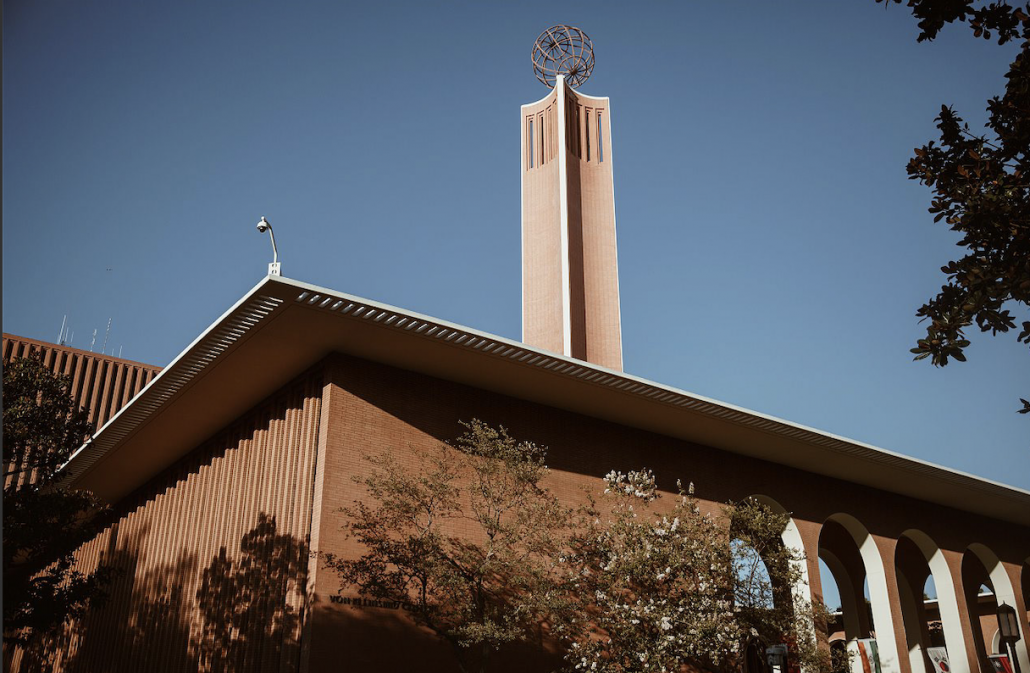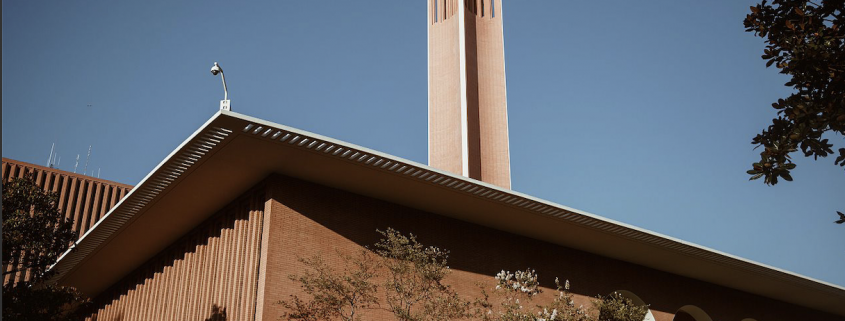Provost creates task force to reconsider campus symbols

Provost Michael Quick announced the creation of a Task Force on University Nomenclature Monday. The group will be responsible for defining a set of principles and processes for faculty, staff and students to submit concerns regarding campus building names, symbols and monuments, according to a memo sent to the USC community.
Paula Cannon, a professor of molecular microbiology and former president of the Academic Senate and Ainsley Carry, vice president of Student Affairs, will lead the task force.
“As we grow as a university community and as we grow as a nation, we are having important conversations about the names of certain buildings, monuments and symbols,” Quick wrote. “Many of these from our past may evoke views and practices that we no longer support and may cause pain for members of our community.”
Carry said the decision to create the task force comes on the heels of a national movement across many American universities to rethink the names of campus landmarks that may threaten certain populations.
“This has been part of a national movement … for a number of institutions like ourselves, including Michigan, Yale, Princeton, Harvard and Stanford,” Carry told the Daily Trojan. “They have done exactly what we are getting ready to do … through whatever [ways] it came to their attention … so University’s had to create a process to interrogate this.”
Though the official Task Force was announced Monday, the Undergraduate and Graduate student governments previously passed resolutions in requesting the administration to acknowledge USC’s troubled history and to facilitate open discussions to reexamine building names.
“Last spring, USG passed a resolution about changing the name of [Von KleinSmid Center] and in conjunction with that over the summer, myself and Emmett wrote a resolution that the GSG executive board put out about … the history of racism on campus,” said Quinn Anex-Ries, GSG’s director of diversity and equity advocacy. “[We] both worked together to result in the creation of the University Task Force.”
Many students and organizations have called on the University to change the name of Von KleinSmid Center — a building named after USC’s fifth president, Rufus B. Von KleinSmid, an active member of the eugenics movement who advocated for forced sterilization practices.
“The University itself needs a systemized way of changing things,” Anex-Ries said. “More specifically, [the Task Force] allows for us to create the framework to have more complex conversations across the University about why it is even important to consider why something is named.”
While the task force does not deal with a particular building or name, its members will help develop a way for the USC community to voice their concerns regarding campus nomenclature.
“The principles should be broad enough to be applied to a variety of circumstances rather than tailored to a particular issue or controversy, and the Task Force should not deal with any particular issue or controversy,” Quick wrote. “The Task Force should weigh all relevant considerations and develop criteria for making such decisions.”
Carry said the task force is meant to outline the sequence of steps students, faculty and staff can take to help the University address change.
“Let me emphasize, this task force will not end in a result,” Carry said. “There will not be any specific name changes as a result of this task force, but what will be crystal clear is a step by step sequence of how members in our community … can submit a request for that level of interrogation.”
The Task Force comprises nine architecture, design, public policy, philosophy, history and law professors, as well as three undergraduate and two graduate students.
Anex-Ries said he is pleased with the diversity of voices represented on the task force.
“I definitely think [the task force] is a group that will definitely have very spirited debate,” Anex-Ries said. “Of course, I would always love to see more students on the task force, but for USC and for previous instances, I actually am impressed with the breadth of people they have been able to put on the task force.”
Shaghayegh Ebadi, co-chief diversity director of USG, said the task force is a necessary step toward increasing support for marginalized communities on campus.
“Tough conversations must be had on the impact of the various monuments and symbols that we administer across campus, but the work cannot stop at mere conversations,” Ebadi wrote in an email to the Daily Trojan. “A mission statement praising equity and diversity ultimately loses its value if an administration cannot effectively implement action to change its own harmful practices.”
Ebadi said she hopes the task force will also shed light on historical injustice at the University.
“This task force must embody a progressive mission to shed light on USC’s … cultural hegemony that continue to harm our marginalized student communities,” Ebadi wrote. “New naming policies must be developed to address these inequities alongside formative solutions and help guide the University into an age of true commitment to diversity and inclusion.”

